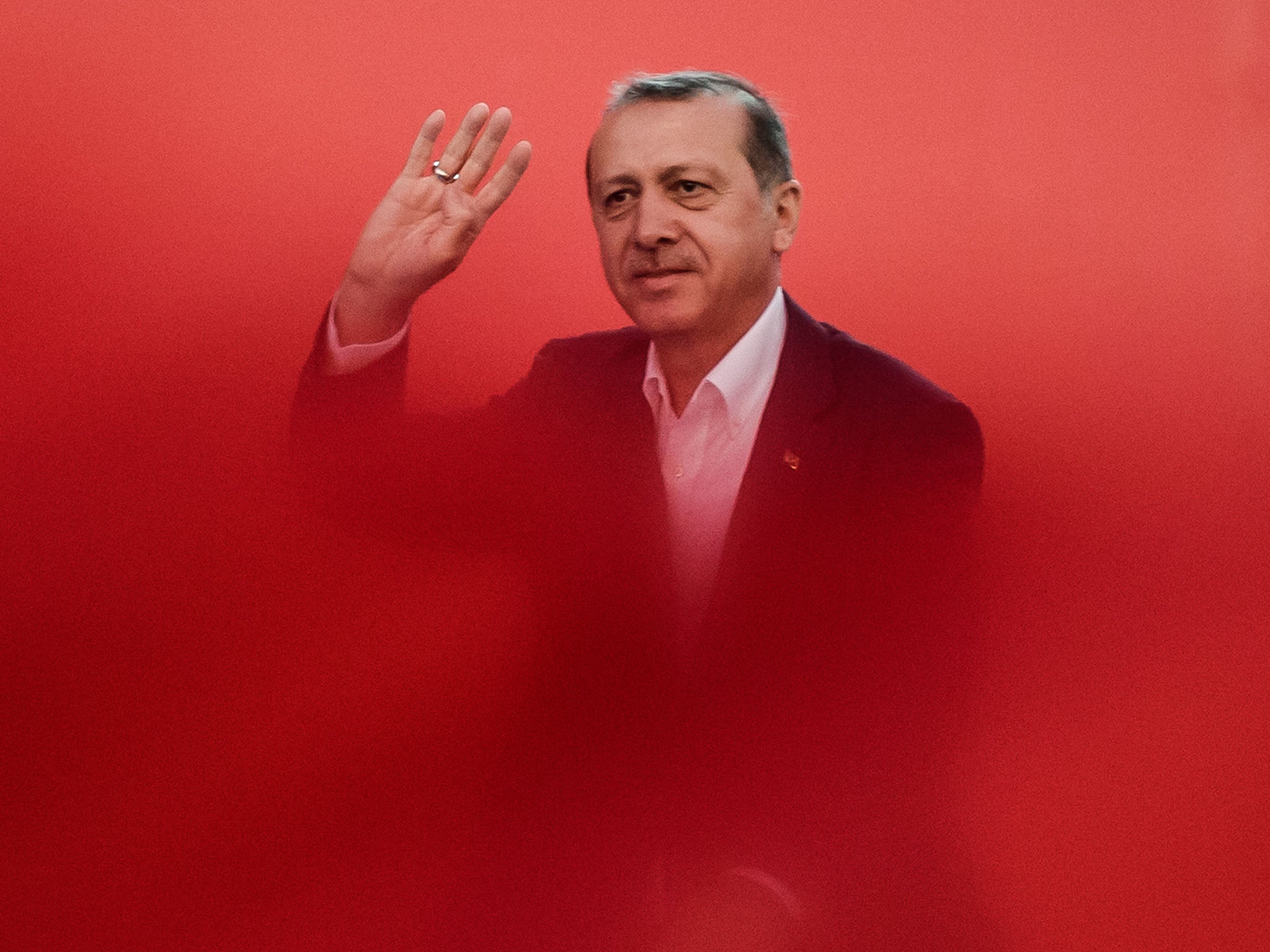Turkey coup: President Erdogan backs reintroduction of death penalty
Turkish president tells millions at pro-government rally he would approve return of capital punishment

The streets of Istanbul were overflowing with supporters of Turkish President Recep Tayyip Erdogan on Sunday night with more than a million people attending a rally in the wake of last month’s failed military coup.
Turkish government sources said five million people arrived to support the president, and the event was broadcast to thousands more at smaller rallies across the country.
Speaking to the crowd, Mr Erdogan lashed out at Fethullah Gülen, the former imam and founder of the Gülen movement, which Turkish authorities have blamed for the insurrection, and said he would approve the return of the death penalty in Turkey if that was what the people and parliament wanted.
“If the nation makes such a decision [in support of death penalty], I believe political parties will abide by this decision,“ Erdogan said
“As the sovereignty unconditionally belongs to the nation and as you request the death penalty [for the coup leaders], the authority which is going to decide on this issue is Turkey’s National Assembly. If our parliament takes such a decision, the necessary step will be taken. I am expressing in advance, I will approve such a decision coming from the parliament.”
He added: “They say there is no death penalty in the EU... Well, the US has it, Japan has it, China has it, most of the world has it. So they are allowed to have it. We used to have it until 1984. Sovereignty belongs to the people, so if the people make this decision I am sure the political parties will comply.”
Human rights groups have condemned any move Turkey makes in seeking to reinstate the death penalty.
The reintroduction of such legislation would also seriously damage any outside hope the country had of joining the EU.
Amnesty International said Mr Erdogan’s statements on the death penalty in the wake of the failed coup, in which at least 270 people died, are “a significant concern”.
The organisation’s deputy Europe director Fotis Filippou told the Independent: “Amnesty International is alarmed by statements that the death penalty could be reinstated retrospectively as a punishment for those responsible for the coup attempt. Such a move would violate international human rights treaties to which Turkey is a party, as well as Turkey’s own constitution.”
He added: “The appalling violence committed by those behind the 15 July failed coup led to the tragic loss of more than 200 lives and the Turkish government must bring all those responsible for these crimes to justice. However, this should be done through fair trials not subject to the death penalty.
“Turkey abolished the death penalty for all crimes in 2004 and is one of 103 countries to have done so. Reintroducing this ultimate cruel, inhuman and degrading punishment would be a major setback for human rights.”
Emma Sinclair-Webb, Human Rights Watch's Turkey director said: “Bringing back the death penalty in Turkey would be a shocking backward step at a time when most of the world is on a trajectory towards total abolition of a form of punishment unique in its cruelty and finality.
“Human Rights Watch opposes capital punishment in all cases. It is a punishment inevitably and universally plagued with arbitrariness, prejudice, and error. The death penalty is widely rejected by rights-respecting democracies around the world, including all 47 member countries of the Council of Europe.”
Since the uprising, about 18,000 people have been detained or arrested, and tens of thousands of public sector workers have been fired or suspended.
The government has repeatedly blamed the Gülen movement for having a role in the coup, and at the rally, Turkey’s prime minister, Binali Yildirim described Mr Gülen as the leader of a “terrorist group”, and said he would be brought to Turkey to “pay for what he did”.
Mr Gülen, a preacher and former imam, was a close ally of President Erdogan until 2013. The relationship turned sour after a corruption scandal implicated Mr Erdogan, who then accused Mr Gülen of being behind the corruption investigation.
He is now on Turkey’s most-wanted terrorist list and the country has demanded his extradition from the United States where he is in self-imposed exile in Pennsylvania.
The Gülen movement teaches a moderate Islam which believes in science, multi-party democracy and interfaith dialogue between the Abrahamic religions.
Join our commenting forum
Join thought-provoking conversations, follow other Independent readers and see their replies
Comments
Bookmark popover
Removed from bookmarks